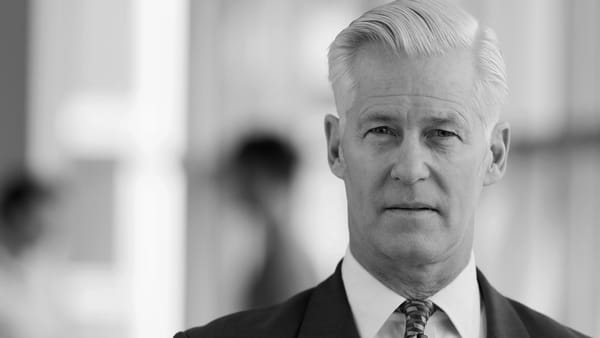Perfect on Paper, but No Offer? Here’s Why, and How to Fix It
Interview success is not just about being the right candidate. It’s about ensuring the company knows you are.

Interviews are imperfect systems. They are often disjointed exchanges, riddled with vague questions and missed signals. The net result is highly qualified candidates, perfect on paper, walking away without an offer and wondering where it all went wrong.
Ironically, the more qualified you appear, the greater the expectation that you’ll naturally demonstrate your fit. This breeds complacency in both the interviewer and the candidate. The interviewer assumes your qualifications speak for themselves, while you assume they’ll recognize your value without you having to spell it out.
The problem is not entirely with the interviewer, though many are unprepared or just not particularly good at interviewing. The issue also lies with the executive’s approach. Too often, candidates assume their credentials are enough. They expect the interviewer to piece together how their skills align with the company’s challenges.
This assumption is a costly mistake.
It's Your Job to Connect the Dots
The reality is simple: it’s not the company’s job to figure out your value. It’s your job to articulate it. In a competitive market, the candidates who win are those who step into the interview as problem-solvers, not just as job seekers.
Consider this scenario: you have an impeccable resume. The numbers are there, the credentials are solid and the accolades impressive. You enter the interview confident. The conversation progresses, but the interviewer never really digs deep. The interaction ends politely, but there’s no follow-up.
What went wrong? Simply put, you left the heavy lifting to the interviewer.
Hiring leaders, even the sharpest ones, often lack the inclination or expertise to map your experience to their company’s challenges. They’re busy juggling competing priorities and are often guided by a structured (and sometimes flawed) interview process. Expecting them to connect the dots between your achievements and their needs will set you up for failure.
Take Control: Act as a Consultant
Approach the interview as a consultant. Consultants are not passive participants in conversations, they actively diagnose problems, align their expertise with client needs and demonstrate how they can drive outcomes.
Here’s how to apply that mindset:
- Do your homework: Research the company thoroughly—its industry, competitors, recent news and its pain points. Use earnings calls, press releases and even LinkedIn posts from its leadership to uncover strategic priorities and challenges.
- Diagnose the problem: Based on your research, hypothesize what challenges the company might face. Are they struggling with scaling operations? Entering a new market? Managing a leadership transition?
- Distill your value proposition: Articulate how your specific skills, experiences and successes directly address these challenges. Provide concrete examples: “At [Previous Company], we faced a similar scaling issue. We implemented [Solution], which resulted in [Measurable Outcome]. I would expect you'll likely have to tackle [Challenge]. I would do [X, Y, Z]. ”
- Lead the conversation: Don’t wait for the interviewer to ask the perfect question. It may never come. Steer the conversation by framing your responses around the challenges you’ve identified. For instance: “One challenge I suspect might be relevant is [X]. Here’s how I’ve tackled something similar.”
Why This Works
Taking this approach not only showcases your expertise but also positions you as someone who understands the company’s needs. It demonstrates empathy, proactivity and strategic thinking - qualities that stand out.
Moreover, this shifts the power dynamic in your favor. Instead of passively answering questions, you’re engaging the interviewer in a meaningful dialogue about their business. This creates a memorable impression and builds trust, two things that are critical in the decision-making process.
Did You Solve the Problem?
The cost of leaving your value articulation to chance is immense. For every executive who assumes their resume will do the talking, there’s another who understands that an interview is an opportunity to sell - not just yourself, but your ability to solve specific problems.
In today’s market, it’s not enough to be qualified. You must make it undeniably clear that you are the solution to the company’s challenges. If you don’t, someone else will.
As the old adage goes, “It’s not what you say, it’s what they understand.” In an interview, make sure they understand.
The Executive’s Responsibility
Ultimately, the burden of proof lies with you. Interviewers are imperfect evaluators working within an imperfect process. The responsibility to bridge the gap - to connect your value with their challenges - rests on your shoulders.
Approach interviews with the mindset of a consultant. Diagnose the problem, articulate your unique value and propose a clear solution. The more effectively you can demonstrate alignment, the more likely you are to leave an unmistakable impression.
The best executives are those who can think strategically and act decisively. Your ability to demonstrate these qualities in an interview is a preview of the value you will bring to the organization. Make sure you connect the dots.





